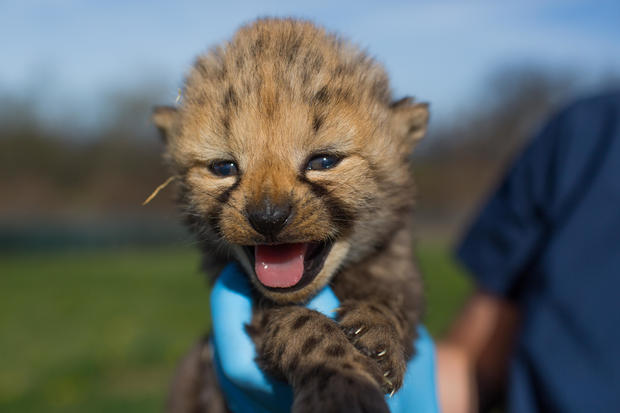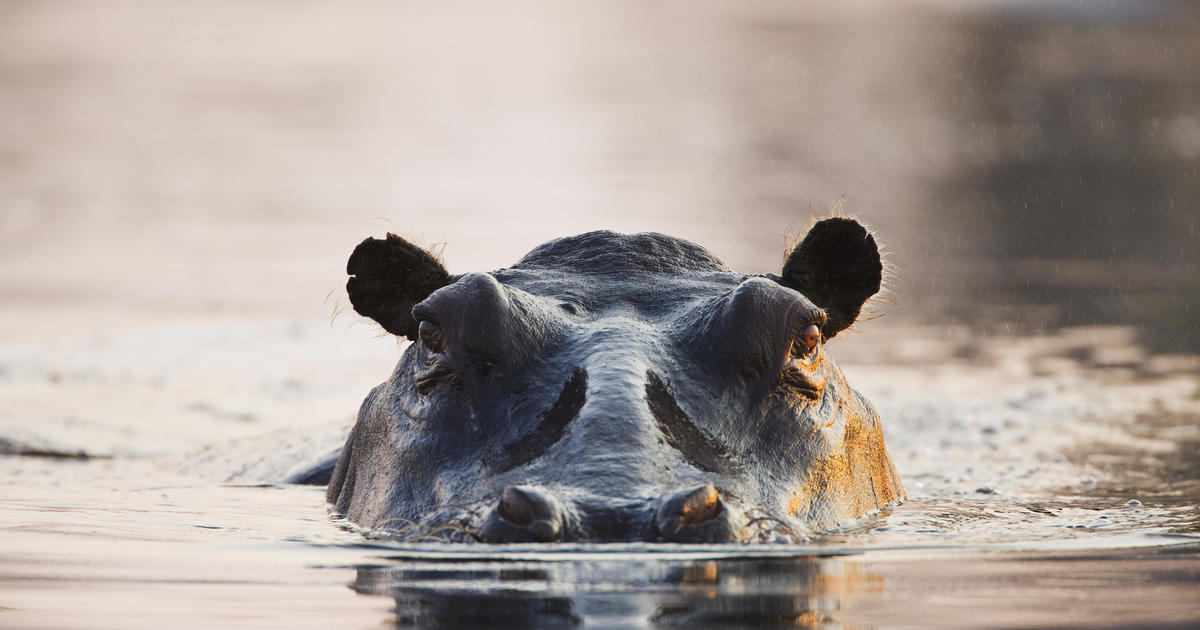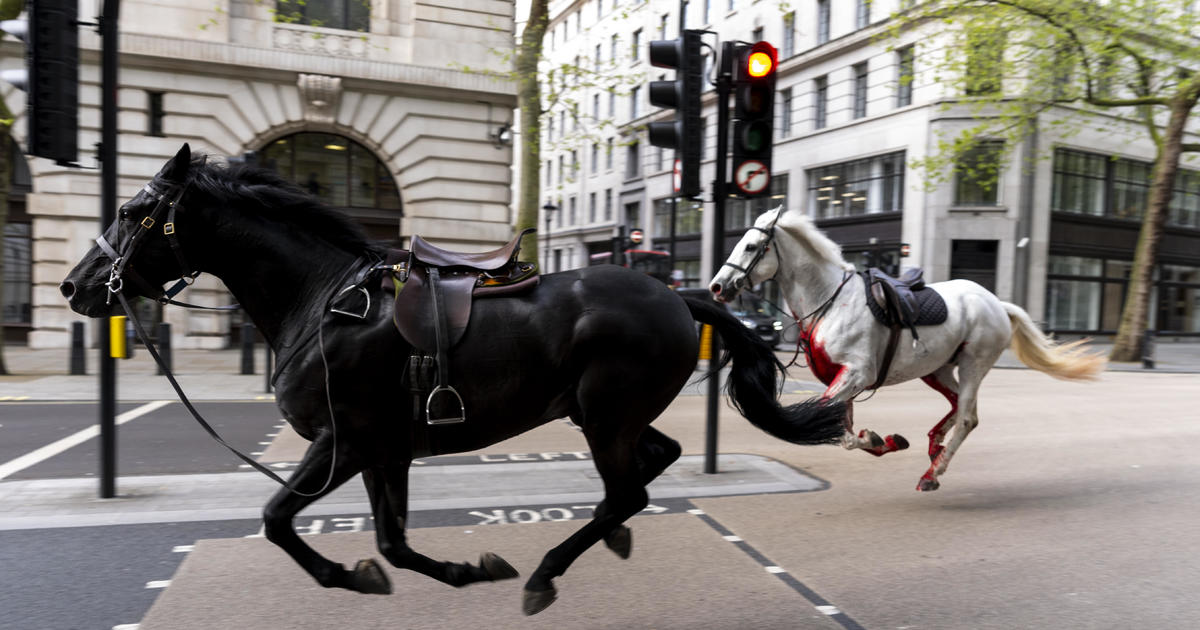Cheetah baby boom at the Smithsonian as species faces extinction in the wild
FRONT ROYAL, Va. -- The fastest animal on earth can’t outrun the threats in a changing world, but can scientists help slow things down?
At just three weeks old, the newest residents of the Smithsonian’s cheetah science facility are getting a check-up.
“This is where it’s hard because they don’t like to sit still,” biologist Adrienne Crosier says as she weighs one cheetah cub. She notes “1.75 kilos. That’s just under four pounds.”
Crosier, manager of the institute’s cheetah reproductive program, says each cheetah cub has its own personality at this young age.
“Some are a little more feisty, some are a little more laid back,” she says.
The Smithsonian Conservation Biology Institute in Virginia had a baby cheetah boom at the end of March -- two litters in a week. Crosier runs the breeding program.
“Part of what I do -- is to try to make the best genetic matches but also the best matches based on individual temperament.”
Crosier also jokingly admitted that she’s the cupid for cheetahs.
While cheetahs are thriving here, the fastest animal on land is disappearing in the wild. They’re in such peril, some scientists are calling for them to be moved to the endangered species list.
Crosier says the cheetahs are mostly vulnerable due to the loss of their habitat.
“The areas that they occupy in Africa have been reduced dramatically. A lot of human encroachment into their territory,” she says. “There’s also a lack of genetic diversity in the cheetah population, making it harder for them reproduce.”
She says there’s only about 7,500 cheetahs left in the wild.
“When I first started working on cheetahs about 15 years ago they thought there was about 10,000 to 12,000 animals left in the wild, so they’re disappearing very quickly, very quickly.”
With top speeds of 60 mph, it’s been said that nothing can outrun a cheetah except, perhaps, extinction. But these little guys are doing their best to leave extinction in their dust.





